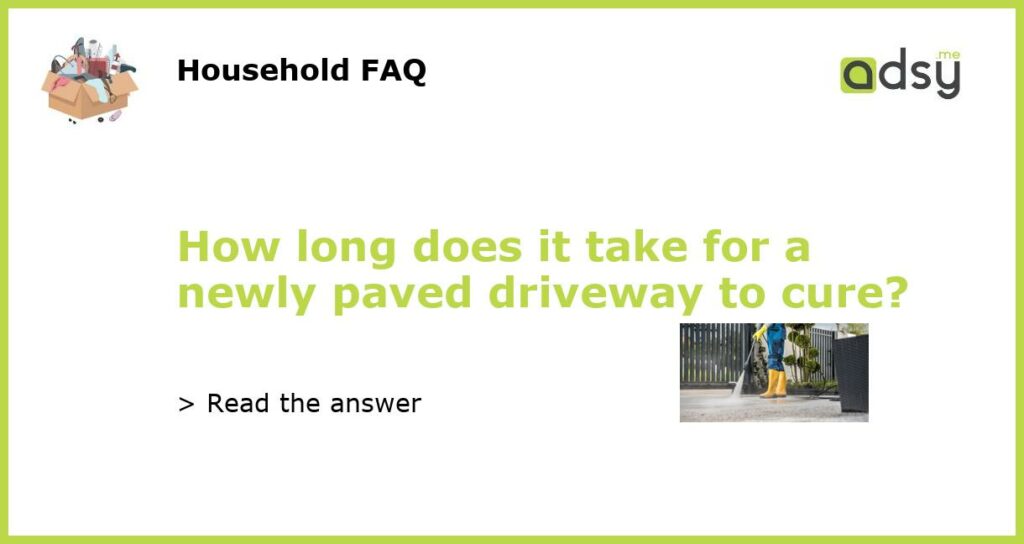How Long Does it Take for a Newly Paved Driveway to Cure?
A newly paved driveway can greatly enhance the appearance and functionality of your property. However, it is important to allow the pavement to cure properly before subjecting it to heavy use. The curing process ensures that the asphalt becomes strong and durable, providing you with a long-lasting driveway. The specific timeframe for curing can vary depending on various factors, such as weather conditions and the type of mix used. Let’s take a closer look at how long it typically takes for a newly paved driveway to cure.
Initial Curing Period: 2-3 Days
During the initial curing period, immediate steps should be taken to protect the newly paved driveway. It is recommended to keep all vehicles off the surface during this time to prevent indentations and damage. Additionally, you should avoid walking or placing objects on the driveway to allow the asphalt to set properly. This period usually lasts for about 2-3 days, allowing the pavement to harden and stabilize before it is exposed to normal use.
Avoid Heavy Use: 7-10 Days
After the initial curing period, you will still need to exercise caution and avoid heavy use of your newly paved driveway. This means refraining from parking heavy vehicles, such as trucks or recreational vehicles, on the pavement. Driveways that are subjected to heavy loads too soon may experience premature damage, such as rutting or cracking. It’s best to wait 7-10 days before placing heavy items on the surface to ensure proper curing and durability.
Full Curing: 30-90 Days
While the initial curing period and avoidance of heavy use are important steps, it can take several weeks to several months for a newly paved driveway to fully cure. The exact timeframe will depend on factors such as temperature and humidity. In general, it is recommended to wait at least 30 days before sealing or applying a seal coat to the surface. This allows the asphalt to fully cure and harden, ensuring a longer lifespan for your driveway.
Additional Considerations
In addition to the curing timeframes mentioned above, there are a few other factors to keep in mind during the process. Firstly, it’s important to note that colder weather conditions can prolong the curing time. If you have your driveway paved during the winter months, it may take longer for the asphalt to cure properly. Secondly, regular maintenance and cleaning of your driveway can contribute to its longevity. This includes removing debris, such as leaves or snow, as well as promptly repairing any cracks or potholes that may develop over time.
Trusted Paving Professionals
For a newly paved driveway to cure and perform optimally, it is crucial to hire a reputable paving professional. Experienced paving contractors will have the necessary knowledge and expertise to properly install and cure the asphalt. They will also provide you with specific instructions and timelines based on your unique situation. Always choose a trusted contractor with a history of successful projects and positive customer reviews to ensure the best results for your newly paved driveway.

